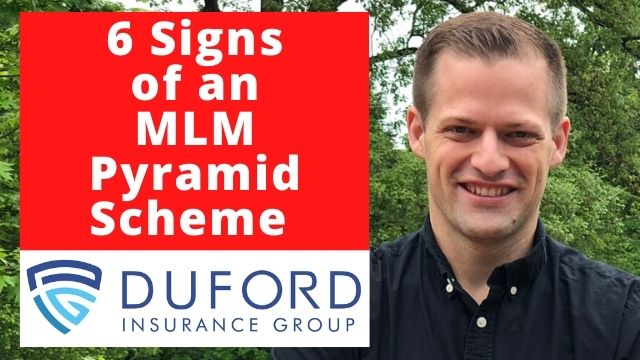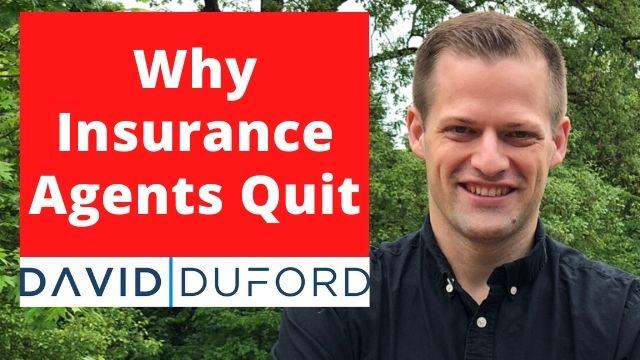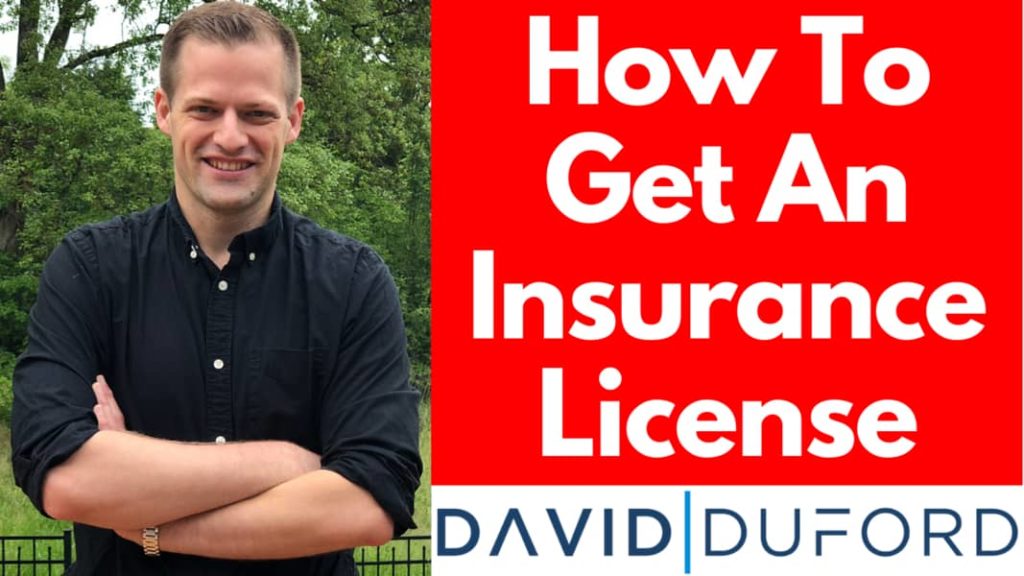Are you looking for advice on how to prospect or cold canvas for insurance sales door to door?
If so, you’re in the right place. Whatever insurance product you sell, the fundamentals are all the same.
My name is David Duford—the owner of Duford Insurance Group. I train and recruit agents nations to become top producers, selling final expense, Medicare, and annuities both face to face and over the phone.
In this article, I will explain how to cold call door to door and reveal my top insurance sales tips specifically for new and aspiring agents, including the script I use word for word when prospects answer the door.
So, let’s go ahead and jump right in.
Quick Navigation Links
Must-Know Insurance Sales Tips!
Tip #1 – Specialization Is Key
Specialization is key in any business. I recommend picking one product you really like and then going door to door selling that one product.
Whether you sell term insurance, Medicare, or final expense, master the one niche which interests you the most.
Tip #2 – Who’s Your Target Market?
Think about the target market that’s conducive to that particular product. For instance, I wouldn’t sell term insurance to seniors. Some will buy, of course. But a lot of them are either too old or can’t afford it.
I would, however, sell term insurance all day long to business owners. See what I’m getting at here?
Business owners need term insurance. They’ve got financial planning needs, debt liability that needs to be covered, and so on, making them great long-term prospects.
Either way, the product you sell has to match the market you’re prospecting to in order to make door knocking more effective.
Tip #3 – Activity Is King
Don’t door-knock unless you can hit 30 doors a day. You have to hit 30 doors every single day—no matter how many presentations you run. Hitting 30 doors a day is the solution to your sales woes.
None of this stuff works with only 10 or 15 knocks a week. But hit 150 doors, and you’ll see some level of consistency soon enough.
Now, with that said and done, let’s talk about strategy.
How To Cold Call For Insurance Sales Door to Door
Tip #1 – The Wave
For some, this first tip feels a little cheesy. But it honestly does work. The first thing you should do when you get out of your car and look towards the house is wave.
Now, a lot of people roll their eyes at the wave. I do, too, sometimes. But, the idea is that whether or not you see anyone in the house, you should wave. Many times you’ll catch people peeking out the window, and they’ll think, “Great, he saw me, so I have to answer the door now.”
How well does this strategy really work? Honestly, I can’t say for sure. But in theory, it seems to hold well. Not to mention, a lot of agents have been doing this for a very long time.
Tip #2 – Knock Loud and Clear
I was working direct mail leads one night and knocked on someone’s door particularly hard. When the people answered, they were in shock and said, “Man, you should not knock like that. You sound like the cops!”
And in my mind, that’s exactly what I want you to think because who’s not going to answer the door to the police?
Plus, and this is my opinion, as somebody who’s been doing this a long time—when you knock, you translate your authority and assertiveness, almost like a handshake. If you’re quiet, reserved, or weak in your actions, people will assume the same of your personality and know-how.
Of course, you don’t want to break the door down, but a half-arsed knock won’t give the impression you’re a top-producing salesperson. When I knock on the door knock, I knock 11 times in a rhythmic fashion.
Remember, a lot of these people, especially if you’re working the senior market, can’t hear anyway. And chances are their doorbell is broken too. Even if it’s not, a strong door knock will get their attention right away.
So now that you have them at the door, what’s next?
Tip #3 – Act Legitimate
You’ve got to make direct eye contact. Don’t shift your gaze or look down nervously at the floor. You’re not a criminal. You have to look legitimate, honest—like you’re supposed to be there.
Great communication is not just what you say but also your body language, behavior, persona as well as how you address your prospect.
We cannot take for granted our outward appearance or the signals our body language conveys. This may sound redundant to you, but surprisingly, a fair amount of people don’t recognize the importance of how they present themselves.
It only takes a few seconds for a prospect to decide whether they’re going to let you, a stranger, into their home. So it’s vital you get this stuff down immediately.
Tip #4 – Smile
Building on that, make sure you smile. If you don’t and you’re making direct eye contact, you’re going to look a bit sadistic. So smile. When you do, your eyes widen, and you’ll seem a lot friendly and happy.
You can tell right away when someone hates their job or is having a bad day. Not to mention, it ruins the customer experience and just comes off rude.
But if you smile, make eye contact, speak up a little, you’ll create a stronger connection with your prospect.
Tip #5 – Don’t Give Up at the Front Door
Another thing when you’re door-knocking is not to give up at the front door. Plus, you should really be trying the door closest to the car. That’s usually the main entry point.
I can’t tell you how many homes I’ve been in where there’s a potted plant or a TV behind the front door, and if you were to knock there, nobody’s going to answer.
Also, chances are they’ll assume you’re a salesman. So if nobody answers, mosey on over to the other door.
Sometimes people simply don’t hear the front door, so you have to knock on the side door or even the back door just to be heard.
Tip #6 – The Handshake
When they answer the door, say, “Hey, how are you doing? I’m Dave Duford,” and then go for a handshake. Again, body language is key. And in Western society, a handshake is a professional way to introduce yourself. Plus, done right, you’ll convey professionalism and confidence.
Yeah, there may be a few jerks who let you hang and don’t return the favor. But those types of people are jerks to everyone.
Tip #7 – The Script
Right, with that said, let’s get onto the script. Obviously, your script will depend on what you’re selling, but it should go something like this.
Introduce yourself.
“My name is David Duford. I’m with Mutual of Omaha.”
Explain why you’re there.
“I’m stopping by because I help business owners secure affordable term insurance to cover loans, mortgages and replace their income if they pass away.”
You should customize this phrase to suit whatever product you sell. Be succinct and to the point. Definitely don’t ramble.
You could also do this:
“I’m here today because I’m between appointments and wanted to introduce myself and see if you had 10 minutes for me to show you how these programs work.”
Or this:
“I’m in between appointments, figured I’d stop in and introduce myself. All I need is a few minutes to show you how these programs work.”
It’s very easy. It’s casual, and you’re not there to sell them anything. You’re there to show them how it works.
Tip #8 – Ask for the Appointment
And then close by asking for the appointment.
“All I need is 10 minutes. Can I come in? Do you want me to sit over there? Should I take my shoes off before I come inside?”
The closing process of selling a policy begins right at the beginning. It needs to be apparent that you’re there to help and only need five minutes.
Ask for an appointment now, and you’ll get in the door more often than if you didn’t.
By the way, this actually works over the phone as well. Just set the appointment for the same day or the following.
The same goes even if you’re rebutting an objection. You always have to ask, “Can I come in now?” If they’re not free, then set up an appointment.
It’s normal to get objections, especially when you’re cold canvassing or cold calling for insurance sales door to door.
When handling objections, I use the ASC method.
-
- Answer the objection
-
- Sell the appointment
-
- Close
If somebody says, “Oh, I’m busy right now,” simply say:
“Hey, you’re busy right now. That’s fine. Let me come back at two o’clock, or would five work better?”
Assume the close. Give them two times. Whatever works best is what you’ll do.
If that doesn’t work, then I like to set the appointment up for the following day. Restrain yourself from booking appointments out two, three, four, or five days in advance. The no-show rates go higher. People forget or just blow you off and hope you forget.
If somebody says, “I already have life insurance,” say:
“Hey, that’s fine. All I need is 10 minutes to show you how my programs are different. What you do with the information is up to you. Can I come in?”
The key with ASC is to briefly answer the objection. You don’t need to go on some long dissertation. Even saying something like, “That’s fine,” is usually sufficient to address any objection.
The Bottom Line – Cold Calling Door to Door
So, thank you guys for reading.
Dave Duford’s my name. If you haven’t checked out how my agency works, there’s more information on my FAQ page.
Also, I put together a Free Insurance Agent Resource Guide specifically to help new agents like yourself get started.
I hope you enjoyed today’s article. As always, thanks for reading!
BONUS – Questions From You Guys
Question #1 – Dave, how would you approach cold knocking off a list of just names and addresses? I usually do this between appointments and have little success.
Okay. So, first of all, the best way to door knock cold is to grab yourself a lead card. An actual one is best. Filled out, blank—doesn’t matter.
When you’re done, if you’ve got a list of people 60 and older, 65 and older, knock on their door and then show them the card and say:
“Hey, my name is Dave Duford. I’m here because of this card. You’ve probably received this a number of times.
We help people out with state-regulated, final expense life insurance. I’m in between appointments since my job is to follow up with people who sent this card back. I wondered if you had 10 minutes to show you how this program works.
Do you mind if I come in?”
That works beautifully. Why? Because every one of these people, over 60, 65, tends to get six, eight of these mailers a month.
And even if they get less than that, they know what you’re talking about because they’ve seen these cards constantly.
Another thing you can do once you’ve successfully finished with an appointment is to introduce yourself to the surrounding neighbors like this:
“Hey, I’m just stopping in to give you my card.
I met over there with Mrs. Jones. I helped her out with her final expense coverage. I do this as a service.
I just wanted to introduce myself to you and see what you guys are doing for life insurance and whether you’re interested.”
This is a nice strategy because it references their neighbor. It’s not quite a referral, but it’s not exactly cold either.
The last thing I’ll suggest is to make sure you ask if your client knows anyone who might be interested once you’re done with a sale.
“Do you know anyone that’s over 60, female or male, single or married, that has talked about passing away and getting insurance?”
The goal is to try to generate a referral from happy clients. They’ll give you an introduction, and chances are anyone you’re referred to will be a high-quality interested prospect.
Question #2 – Do agents actually have success cold prospecting?
I think they do. But it’s so hard that a lot of people don’t do it consistently enough. It is the most challenging way to generate leads.
I used to sell for a uniform service company called Aramark, and their primary method of prospecting was cold calling businesses. Still, I closed a lot of business, both cold calling on the phone and showing up face to face.
My point is the product isn’t the issue; it’s the process.
A lot of good guys, Ben Feldman, cold-called their way to success. Look at the ADT guys, look at the security alarm guys, look at the cable guys. They do make sales. They do get results. It’s just a grind.
I mean, for final expense specifically, if we didn’t have a direct mail system, how many people would sell final expense? Probably just a fraction of what it is today since nobody wants to cold call because it sucks.
But just because it sucks doesn’t mean it doesn’t work. To a certain extent, it’s a number game. You have to do a lot more calls. You have to do a lot more pitches. But it does work.


January 03, 2023

January 03, 2023

January 03, 2023
![Cover - How To Cold Call For Insurance Sales Door to Door [Must-Know Insurance Sales Tips!]](https://davidduford.com/wp-content/uploads/2023/01/How-To-Cold-Call-For-Insurance-Sales-Door-to-Door.jpg)